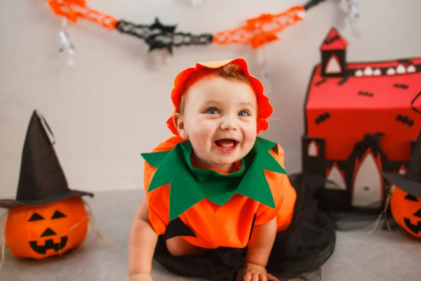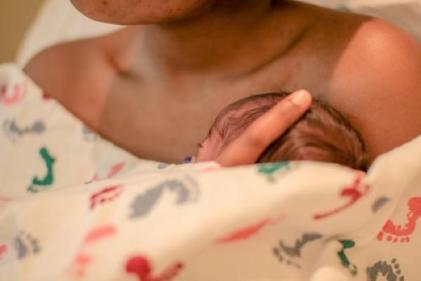In month ten your baby will more than likely be speaking her own special language at every chance she gets. What seems like gibberish to you is actually the foundation of her future speaking abilities. At this time, encouraging her to talk and to understand the meaning of words is crucial to her developing language skills.
Your Child’s Development

In the tenth month of life, your baby is beginning to understand some simple phrases and words. She is also making the attempt to repeat what she hears even though it does not sound like it. This is an important time that will influence her future speaking abilities. At this time, you want to make sure that you talk to your baby constantly and encourage her to talk. When she uses baby words, for example, “ba-ba”, repeat the proper word to her: “You want a bottle?” Using baby talk with your baby is certainly fun and has its place, but you also need to use proper speech in order to encourage her speaking ability to develop.
There are many other ways that you can encourage your baby’s developing language skills. Here are some suggestions:
- Even though it may seem pretty silly at times, always respond to your baby when she is talking. When she tells you something in her special baby language, answer her by saying something like, “Really? That is a very interesting story! Tell me more.” This encourages your child to keep talking.
- When your baby makes gestures or points to an object and speaks in her own words, tell her what the object is. Repeat the word several times as you converse with her. This encourages your baby’s memory skills and language skills.
- Sing songs with your baby. Songs and rhymes that use repetition are best. Your baby will soon start to remember certain words of the song or rhyme and when she starts talking, she may amaze you by adding the words she remembers as you sing the song.
- Show your baby that words go with actions. For instance, waving bye-bye as you say the words “Bye-bye”, or saying “up” as you point up to the sky. This will help her make the connection between words and actions.
- When you are cleaning house, grocery shopping, or performing other everyday actions, use the opportunity to tell your baby what is going on. For example, when you are in the shop tell your baby, “Now we have to get some bananas”, or when you are going for a walk, tell your baby, “Now you are in your buggy and we can go for a walk”. The idea is to use words to communicate your actions to your baby, even though she probably won’t grasp much of it, eventually she will make some connections.
It’s important to keep in mind that all babies are different when it comes to meeting milestones such as speech. While some babies begin to talk earlier than average, others may hold off for months. If you are concerned that your baby is not hitting certain milestones such as language, talk to your GP.






